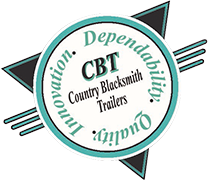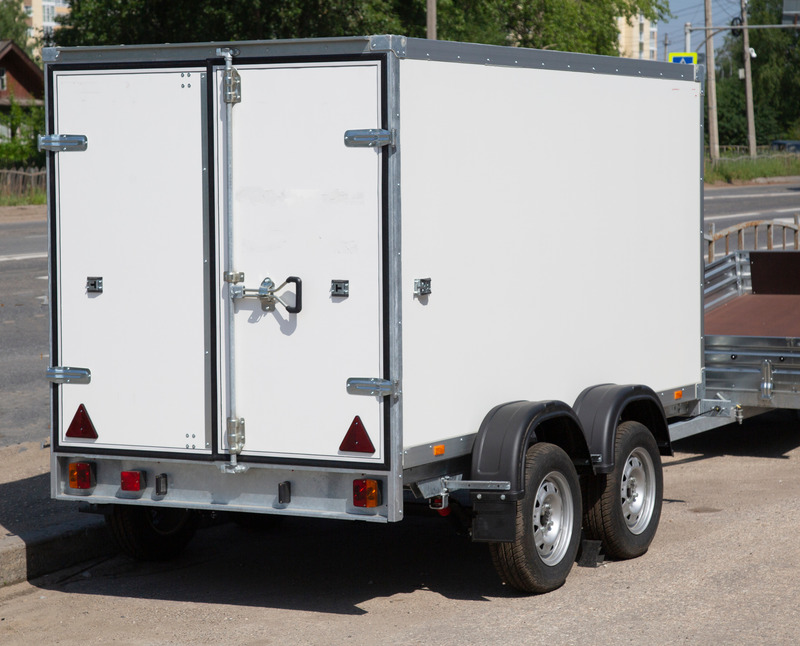How to Pick the Perfect Trailer
Choosing the right trailer can be an overwhelming task, especially with so many options available. Whether you have to haul equipment for your business, plan family adventures, or need reliable transport for a vehicle, finding the perfect trailer requires a clear understanding of your needs. We’re here to cover essential factors that you should consider when thinking about how to choose a trailer, from types and sizes to weight capacity and additional features.
Define the Purpose of the Trailer
The first step in choosing a trailer is to identify its primary purpose. The type of trailer that will best suit your needs depends heavily on what you plan to haul:
For Business Use: Equipment-heavy businesses like landscaping, construction, or moving often require specific trailer types, such as utility, dump, or flatbed trailers.
For Recreational Use: If your focus is on leisure, consider trailers suited for hauling ATVs, boats, motorcycles, or campers. Enclosed trailers are ideal for safeguarding vehicles from the elements.
For Personal Transport: If you need to transport a car or motorcycle, an enclosed car hauler or flatbed trailer will provide security and stability during transit. If you need a trailer to move furniture and boxes, an enclosed trailer is a popular choice.
Understanding the primary purpose helps narrow down trailer types and ensures you’re focused on models suited to your needs.
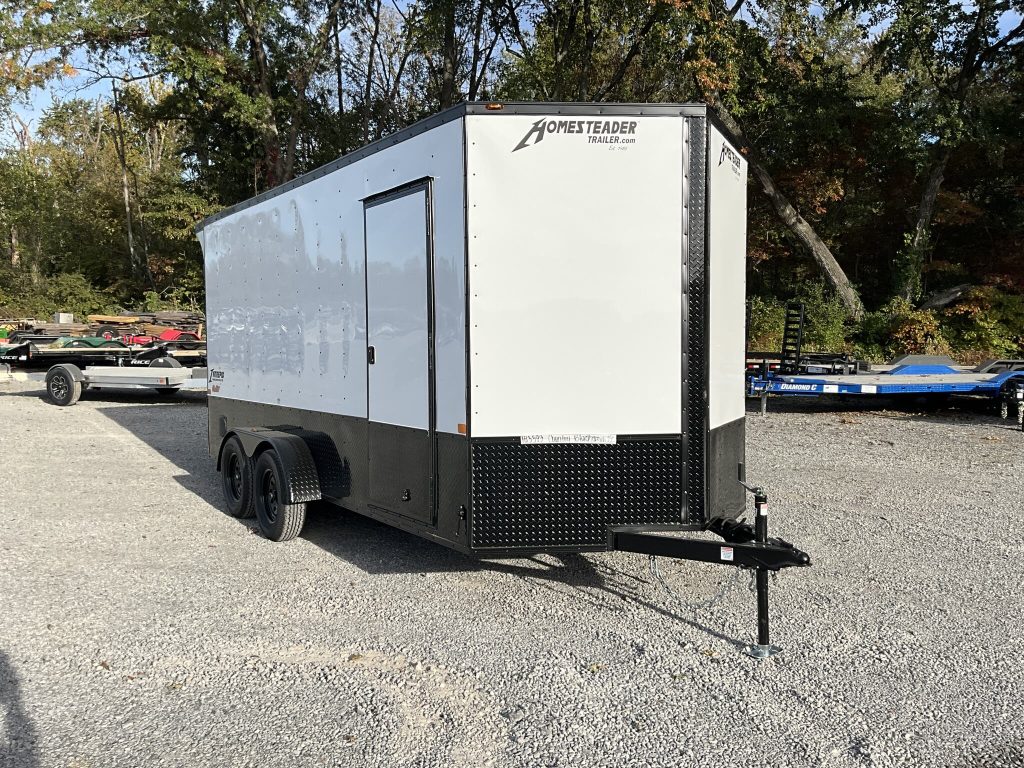
Choose Between Open and Enclosed Trailers
One of the key decisions in how to choose a trailer is whether to go for an open or enclosed design. Both have unique benefits:
Open Trailers: These trailers are typically lighter and more affordable. They’re easy to load and unload, which makes them great for hauling landscaping equipment, ATVs, or building materials. The drawback is exposure to weather conditions and potential security concerns, as open trailers do not have locks.
Enclosed Trailers: Enclosed trailers offer added protection for cargo, shielding it from the weather and offering more security with lockable doors. They’re ideal for high-value items or sensitive equipment. However, they’re usually heavier and more expensive than open trailers, which could impact fuel economy and towing requirements.
Select the Right Size and Dimensions
Size is a crucial consideration, as trailers come in so many different dimensions. The right size depends on your cargo, and it’s essential to get a trailer that provides sufficient space without unnecessary bulk.
Smaller Trailers (4×6 to 6×12): Ideal for carrying smaller loads such as landscaping tools, single motorcycles, or small equipment.
Medium Trailers (7×14 to 8.5×16): Suitable for larger equipment, several motorcycles, or general hauling tasks. This size provides ample space while remaining maneuverable.
Larger Trailers (18+ feet): Ideal for car haulers, multiple ATVs, or commercial use. Be mindful of the towing vehicle’s capacity, as these larger trailers add significant weight.
Assess Weight Capacity and Payload
Weight capacity refers to the maximum weight a trailer can safely carry, and the right capacity is essential for safety and efficiency. Exceeding this limit can damage the trailer, endanger the tow vehicle, and compromise road safety.
Single-Axle Trailers: Typically have a lower weight capacity (up to 3,500 pounds) and are best suited for lighter loads and short-distance hauling. They’re affordable and easier to maneuver but may not be ideal for heavy equipment.
Tandem-Axle Trailers: Designed for higher capacities (up to 7,000 pounds or more), tandem-axle trailers provide better stability and are ideal for hauling heavier loads. These trailers are a great choice for construction equipment, cars and other large vehicles.
Make sure to add up the combined weight of your cargo and equipment to determine the appropriate capacity for your trailer. Also, check your vehicle’s towing capacity to avoid overloading.
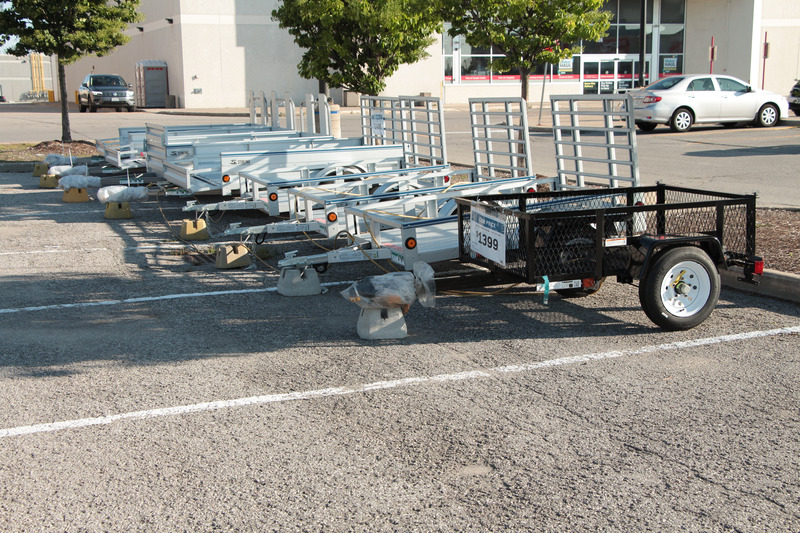
Consider Material: Steel vs. Aluminum
When it comes to how to choose a trailer, the material of the trailer frame and body is a key factor. The two main options are steel and aluminum, each offering unique benefits:
Steel Trailers: Known for strength and durability, steel trailers are ideal for heavy-duty use. They’re less expensive than aluminum but tend to be heavier and can be prone to rust if not maintained properly. If your trailer will be exposed to snow or rain regularly, ensure it’s treated with a corrosion-resistant finish.
Aluminum Trailers: Aluminum is lightweight, rust-resistant, and requires less maintenance than steel. While aluminum trailers are often more expensive, they’re easier to tow and offer excellent durability. If fuel efficiency is a priority or you need to haul lighter loads, aluminum may be the better choice.
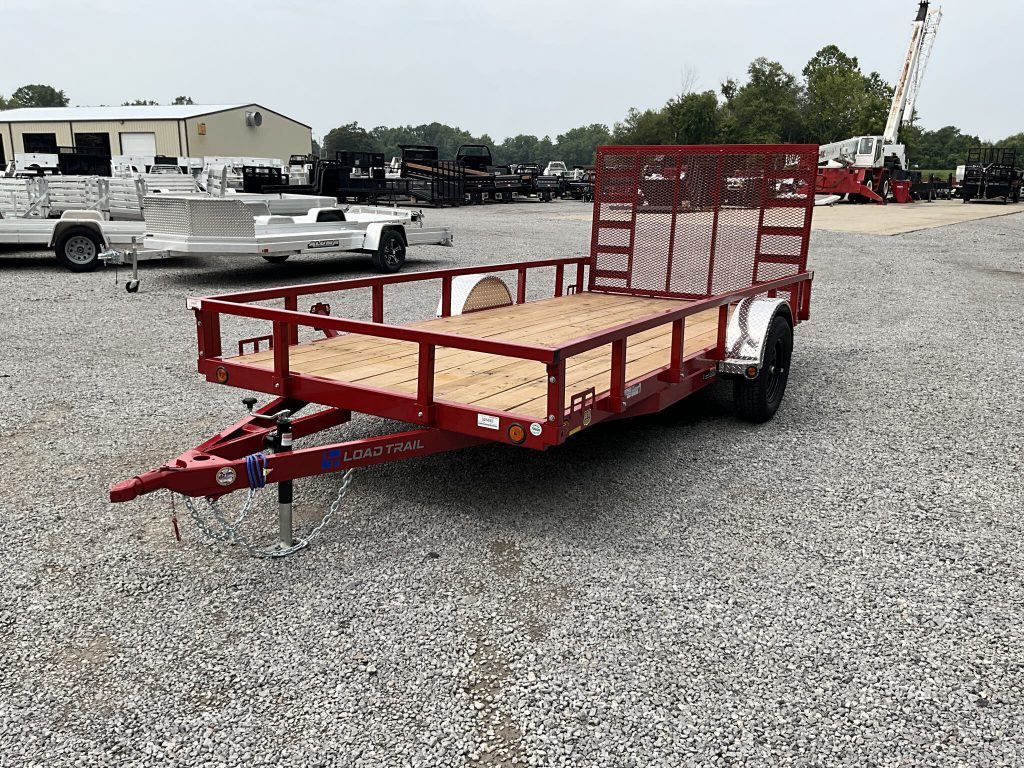
Look for Ease of Loading and Accessibility
Accessibility is another essential factor in how to choose a trailer. Look for features that make loading and unloading easier and more secure:
Ramps and Lift Gates: Trailers with ramps or lift gates are perfect for loading heavy equipment, ATVs, or motorcycles. Some trailers come with built-in ramps, while others require detachable options.
Side Doors and Rear Access: Enclosed trailers often come with side doors or multiple access points, making it easier to reach tools and equipment stored inside. These doors are convenient and allow for efficient organization.
Tie-Down Points and Shelving: Make sure the trailer has ample tie-down points to secure your cargo. Some trailers come with shelves or customizable storage options. These can be handy if you need to store tools, smaller equipment or spare parts.
Towing Capacity and Compatibility with Your Vehicle
A crucial part of how to choose a trailer is ensuring it’s compatible with your tow vehicle. Each vehicle has a specific towing capacity determined by its engine, transmission and other components. Exceeding this limit can damage your vehicle and reduce its lifespan.
Hitch Type: Different trailers require specific hitch types, ranging from ball hitches to gooseneck hitches. Ensure your tow vehicle is compatible with the hitch setup of your chosen trailer.
Vehicle Towing Capacity: Before making a purchase, check the towing capacity in your vehicle’s manual. Match the trailer weight (including cargo) with your vehicle’s maximum towing capacity for safe and efficient hauling.
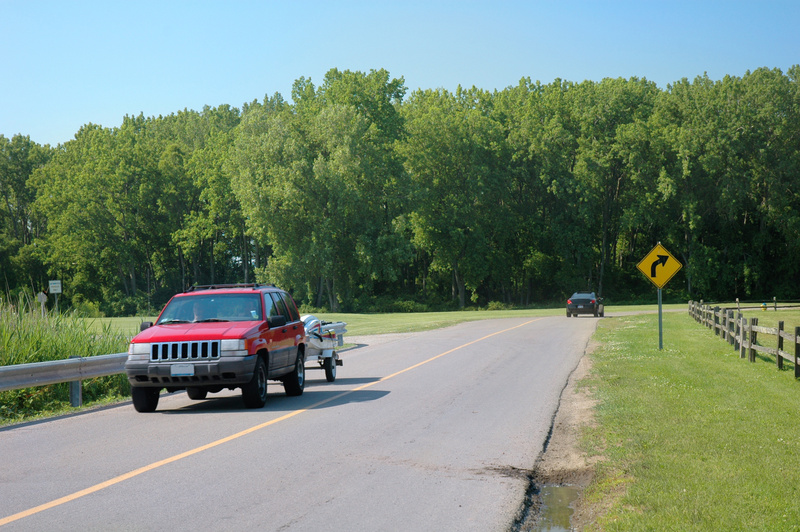
Evaluate Trailer Maintenance Requirements
Maintenance is an inevitable part of trailer ownership, so it’s wise to understand what upkeep will be needed for your choice. Steel trailers often need periodic rustproofing and paint touch-ups, while aluminum trailers may require less maintenance but can be pricier to repair if damaged.
Inspecting Tires and Bearings: Check tire pressure and inspect bearings regularly to avoid breakdowns and ensure smooth towing. Regular lubrication of moving parts also prevents wear and tear.
Cleaning and Protecting the Frame: For steel trailers, corrosion-resistant treatments will help protect against rust, especially in wet or snowy environments. Aluminum trailers should be cleaned regularly to maintain their shine and prevent minor corrosion.
Set a Budget
The final aspect in how to choose a trailer is setting a realistic budget that accommodates both the upfront purchase and any additional features you may need. Consider the following:
Total Cost of Ownership: Factor in the cost of insurance, registration and potential maintenance expenses.
Financing Options: Many dealerships offer financing plans to spread out the cost. This can be beneficial if you’re investing in a high-quality trailer that may be more expensive but offers superior durability and functionality.
Get the Right Trailer with Country Blacksmith
When it comes to how to choose a trailer, there’s no one-size-fits-all answer. By carefully evaluating your needs and understanding the importance of size, weight capacity, material, and additional features, you can confidently select a trailer that will serve you well for years. At Country Blacksmith Trailer Sales, we’re here to help you find the perfect trailer that meets your needs and budget. We have trailers for sale in a wide range of brands and models, from lightweight utility trailers to enclosed cargo trailers for sale. With the right trailer, you’ll be ready to tackle any job, haul your equipment safely and make the most of your investment.
